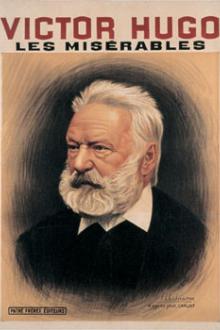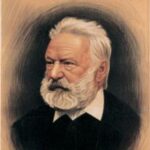Les Misérables, a remarkable blend of history, commentary, and fiction, immerses readers in France’s rich past. While the fictional elements may appear secondary, Hugo’s masterful storytelling shines through as he skillfully intertwines multiple characters. (Translation by Isabel F. Hapgood)
“Les Misérables” is a monumental masterpiece that captures the essence of human struggle, redemption, and the pursuit of justice. Victor Hugo’s magnum opus takes readers on an unforgettable journey through the lives of its richly drawn characters amidst the backdrop of 19th-century France.
The novel, divided into five parts, begins with an in-depth exploration of Jean Valjean’s transformation from an embittered ex-convict to a compassionate, selfless individual. Through active storytelling and powerful descriptions, Hugo showcases the immense power of forgiveness and the possibility of redemption.
Transitioning seamlessly, Hugo introduces a web of interconnected characters, from the morally righteous Inspector Javert to the spirited Cosette and the idealistic revolutionary, Marius. With each chapter, the narrative intensifies, weaving together themes of love, sacrifice, and social injustice.
“Les Misérables” stands as a testament to Hugo’s mastery of language and his ability to tackle complex societal issues. Through vivid prose and thought-provoking dialogue, he delves into the harsh realities of poverty, inequality, and the effects of political upheaval.
In conclusion, “Les Misérables” is an epic tale that captivates beginners with its timeless themes and compelling characters. It is a book that evokes a wide range of emotions, leaving readers contemplating the depths of the human spirit. This classic work of literature continues to inspire and resonate with audiences, reminding us of the power of compassion, the pursuit of justice, and the indomitable strength of the human heart.
Les Misérables
by – Victor Hugo

